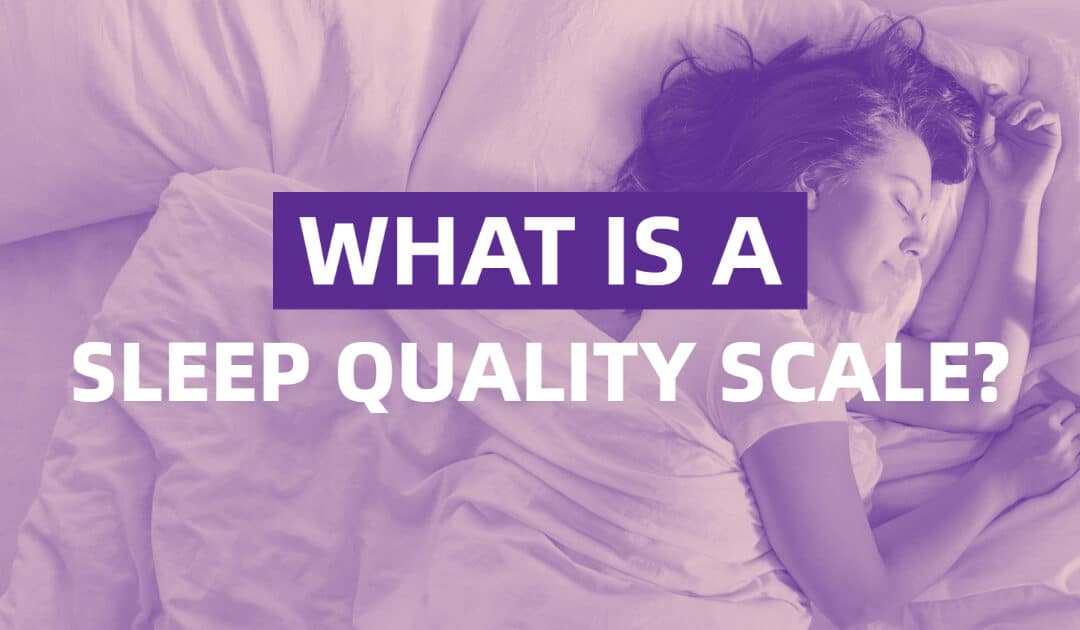What is a Sleep Quality Scale?
Do you often feel tired during the day, regardless of how much sleep you’ve gotten? You’re not alone. Millions of people around the world suffer from sleep problems. Different quizzes and validated scales can help you measure sleep quality – If you’re having trouble sleeping, quizzes may help you identify the areas where you need to make changes. But what exactly is a sleep quality scale?
The publication ‘STOP, THAT and One Hundred Other Sleep Scales’ by Shahid, Wilkinson, Marcu, and Shapiro discusses various sleep scales, including the Sleep Quality Scale (SQS).
Sleep Problems? There’s A Scale For That!
There are many validated scales to measure sleep quality. You can try some of these tests to get an idea of how well you sleep and whether you need help to sleep better. Some tests need a doctor to evaluate for correct scoring. The test-retest reliability of sleep quality scales is crucial as it helps in assessing the stability of sleep quality over different time periods.
Sleep Quality Scale (SQS)
The Sleep Quality Scale (SQS) measures sleep quality in people who live in the general population. The SQS is may be more comprehensive than any other scale, including the Pittsburgh Sleep Quality Index, because it includes questions about how well people function during the day and how well they feel after getting restful sleep. (2) A study published in ‘clin sleep med’ evaluates the psychometric properties of a new single-item sleep quality scale in patients with chronic primary insomnia and depression.
The Sleep Quality Scale (SQS) is a self-report scale designed to measure six domains of sleep quality consisting of 28 items. This quiz may help your ENT doctor in evaluating sleep quality as it includes questions regarding:
- Daytime symptoms
- Restoration after sleep
- Problems initiating sleep
- Problems maintaining sleep
- Difficulty waking up
- Feeling refreshed in the mornings
If you’re having trouble sleeping, this index can help you identify the areas where you need to make changes.
The SQS works for adults aged 18 – 59 years old who were willing to take five minutes out of their day to answer some questions. So if you’re curious about how well you’re sleeping, talk to your ENT doctor about taking the SQS! You might be surprised by what you find.
Pittsburgh Sleep Quality Index (PSQI)
The PSQI consists of 19 items and measures several different aspects of sleep, including:
- Subjective sleep quality
- Sleep latency (i.e., how long it takes to fall asleep)
- Sleep duration
- Habitual sleep efficiency (i.e., the percentage of time in bed that one is asleep)
- Sleep disturbances
- Use of sleeping medication
- Daytime dysfunction
Your overall score ranges from 0 to 21, where lower scores denote a healthier sleep quality. You can find the test here.
Do You Sleep Well? You Might Be Surprised
So what’s your sleep score? Do you have trouble initiating sleep? Maintaining sleep? Waking up feeling refreshed? If so, you’re not alone! Millions of people around the world suffer from sleep problems.
One sleep issue that individuals often ignore is snoring. However, snoring can signify a deeper problem- sleep apnea. Often, individuals snore because they suffer from throat or mouth muscles that collapse while sleeping, causing trouble breathing. This condition is called obstructive sleep apnea and affects how well you breathe throughout the night.
Sleep apnea may cause you to have periods of not breathing during the night. Experts estimate that 25 million adults in the U.S. have obstructive sleep apnea (ASA, 2021). As many as 15-30% of males and 10-30% of females meet a broad definition of obstructive sleep apnea (OSA). (4)
Because most people who suffer from sleep apnea don’t see their doctor for solutions, they may face other more dangerous health issues from not getting enough sleep. Risk factors associated with obstructive sleep apnea include:
- High blood pressure
- Daytime sleepiness leading to accidents
- Heart failure or cardiovascular complications, including atrial fibrillation
- Stroke
- Type 2 diabetes
- Depression
Sleep apnea has medical solutions. If you snore, it’s essential to talk to your doctor about whether or not you might have sleep apnea.
Find Sleep Answers & Feel Better
Sleep is essential for our physical and mental health—when we don’t get enough sleep, it takes a toll on our productivity, mood, and general wellbeing. A good night’s sleep starts with establishing healthy habits and setting up our environment for success. And if we’re still struggling to catch those zzz’s, there are sleep quality scales and quizzes to help us identify the areas where we need improvement.
Self-administered tests can’t precisely assess your sleep quality, but they do provide information about your sleep and may help you see what is causing your sleep dysfunctions.
We Can Help
At Enticare, our team of ENT sleep specialists can help diagnose any sleep disorders you may suffer from. We work with you using quizzes, diagnostic tools, and sleep studies to determine why you struggle with sleep disruptions, insomnia, or snoring. Using polysomnography, we can observe you overnight in our state-of-the-art sleep laboratory. Other tests we use include multiple sleep latency tests, maintenance of wakefulness test, and other medical tests on your overall health.
Our specialized practice focuses on sleep disorders and finding the solutions you need to sleep better. Contact us today to set up an appointment for an evaluation. You deserve a good night’s sleep!
References:
- Sleep Quality Scale (SQS)
- A New Single-Item Sleep Quality Scale: Results of Psychometric Evaluation in Patients With Chronic Primary Insomnia and Depression
- Clinical Version: Pittsburgh Sleep Quality Index (PSQI) | QxMD
- Clinical presentation and diagnosis of obstructive sleep apnea in adults – UpToDate
- Development of the Sleep Quality Scale – YI – 2006 – Journal of Sleep Research – Wiley Online Library

